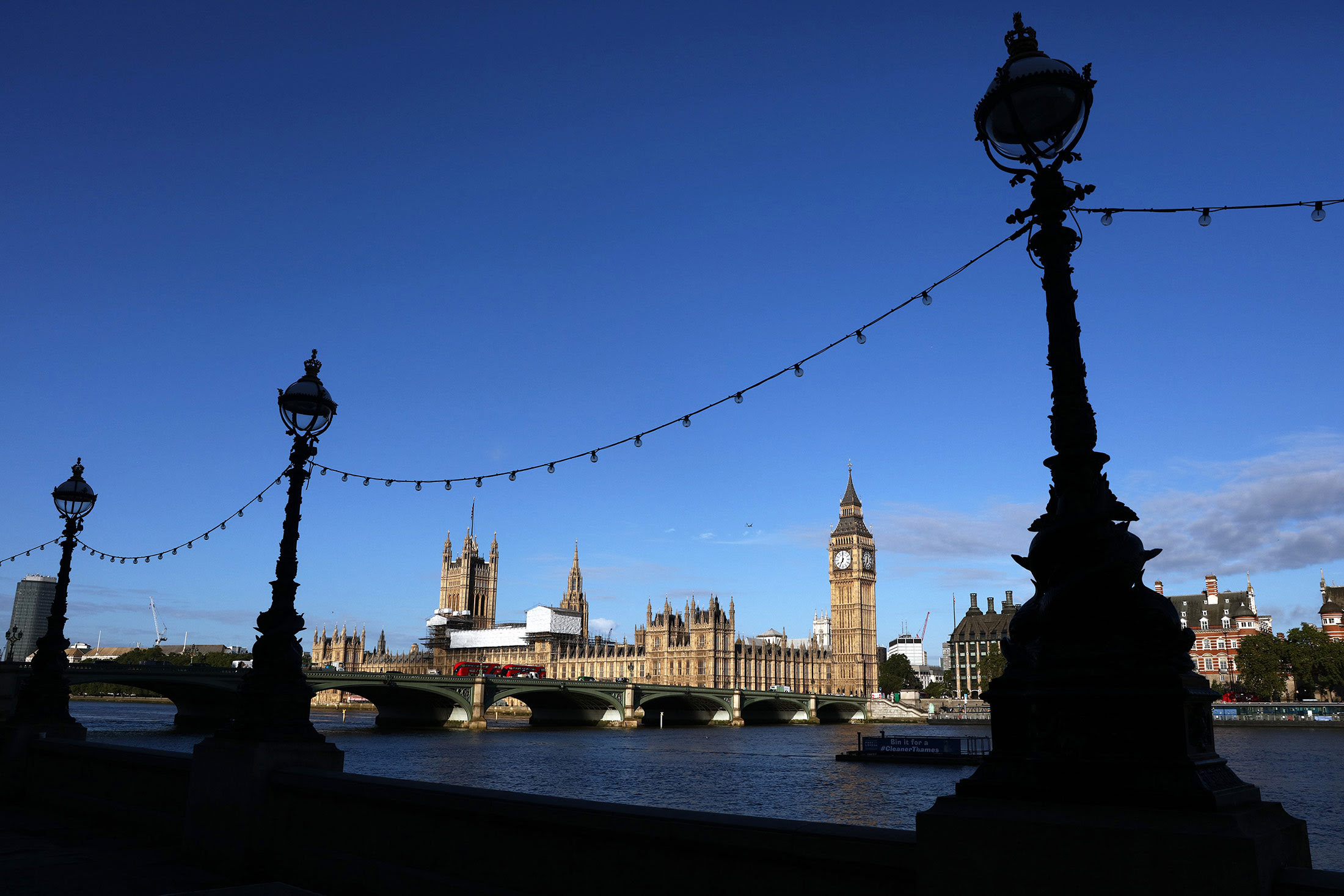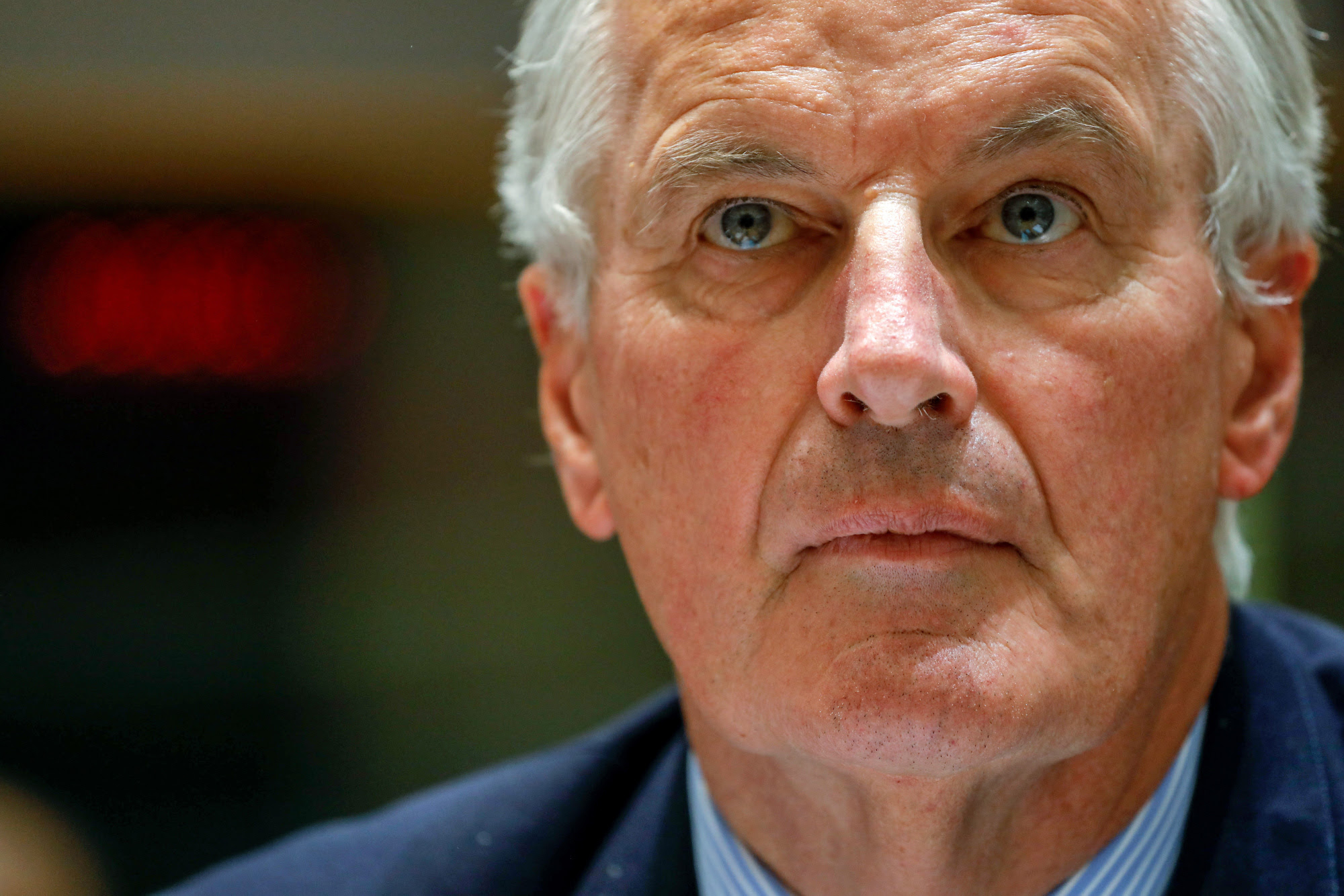Transition Possible?
Two rounds into its Brexit fight, Britain may be learning to love the idea of a transitional deal.
Four days of talks in Brussels involving 140 officials laid bare just how little each side is willing to concede. Everyone wanted a quick deal, but the sticking points in the second round of negotiations are the bill Britain will pay, what to do about the Irish border and even the rights of British and EU citizens.
The talks suggest it may be unrealistic to think the divorce can be wrapped up in two years, and Friday’s newspapers in the U.K. say the nation may be considering adopting a more conciliatory approach.
Free Movement
The U.K. will allow free movement for European Union citizens for up to four years after Brexit in a transitional deal, the Guardian reported, citing an unidentified senior member of the cabinet. Those seeking to soften Brexit within Prime Minister Theresa May’s top team are confident they’ve secured consensus in the cabinet around a transition deal, the newspaper reported. The report chimes with a story in the Times on Friday that May is prepared to allow free movement for up to two years.

That approach may be welcomed by EU negotiator Michel Barnier, who told the U.K. to come back next month with more detail, brushing off David Davis’s suggestion that flexibility was needed. It may also please Peter Mandelson, who served as EU commissioner for trade between 2004 and 2008. He said that the notion that a comprehensive Brexit deal can be reached by the March 2019 deadline is like living in “cloud cuckoo land.”
Business Demands
The reports will be music to the ears of British businesses, which stepped up calls to prioritize a transition agreement with the EU, warning that firms face a “cliff-edge” when the two-year deadline for Brexit talks expires.
The need for clarity on transition arrangements featured heavily in a meeting Thursday with the new business council in Downing Street, both the Institute of Directors and the British Chamber of Commerce said. It was May’s first serious consultation with companies on Brexit more than a year after taking office. She’s trying for a more conciliatory approach to leaving the EU after being weakened by the election.
During the meeting, May “reiterated that the government’s overarching goal is for a smooth, orderly exit culminating in a comprehensive free trade deal with the EU, with a period of implementation in order to avoid any cliff-edges,” her office said in a statement.
Her Chancellor, Philip Hammond, who is leading the push for a Brexit that prioritizes the economy, tweeted after the meeting that discussions had been “insightful.”

In a stark warning, British exporters are unprepared for leaving the EU, a survey published Friday showed. Almost half have yet to review their strategies more than a year after the Brexit vote, despite the EU being a trading partner for 85 percent of exporters, the YouGov poll for Lloyds Bank found.
That 70s Show
As negotiations rumble on, and Parliament heads for its summer recess, Brexit is giving Britain a flashback to the 1970s.
The ambivalence toward Europe, the political fragility of the government and a population grown weary of making sacrifices are all reminiscent of a time when Britain was tormented over whether to join a precursor to the European Union and an economic crisis forced it to seek a humiliating bailout, Bloomberg’s Charlotte Ryan and Eddie Buckle write. Add in the heightened security alert and you have a level of turmoil rarely seen since the so-called lost decade of widespread labor unrest, political instability and terrorist attacks by Irish Republicans.
That means May has much to ponder when she heads for holidays in Italy and Switzerland this summer. Like Ted Heath in 1974, she took a gamble in calling a snap election only for the Conservatives to lose their majority. Unlike him, she has stayed on. No prime minister since 1977 has been as unpopular as she is, a mere month after prevailing in elections, the latest polls show.

How did the story end 40 years ago? A succession of strikes against government-imposed pay caps, with trash piling up in the streets and bodies left unburied, became known as the “Winter of Discontent.” Five years of unstable Labour governments came to an end when Prime Minister James Callaghan lost a motion of no confidence by a single vote.
Brexit in Brief
- Deutsche Bank Chief Executive Officer John Cryan told his employees the firm is preparing for a hard Brexit and will probably book the “vast majority” of its assets in Frankfurt. Meanwhile, Citigroup’s head of Europe, the Middle East, and Africa told staff in a memo that Frankfurt is the “first choice” for the bank’s EU broker-dealer
- Britain will lead the world in protecting the seas, habitats, and climate after it has left the EU, Environment Secretary Michael Gove will say in a speech Friday, outlining his vision for a “Green Brexit”
- The U.K. Department for Transport is planning to put Heathrow at the heart of post-Brexit growth
- The billionaire Barclay brothers scrapped a plan to sell U.K. online fashion retailer Shop Direct after a potential buyer lost interest
- Former Business Secretary Vince Cable became the leader of the anti-Brexit Liberal Democrats on Thursday after no one else put themselves forward to replace Tim Farron, who resigned last month.
And Finally...
Any bank exodus to Frankfurt in the wake of Brexit may run up against a major problem: There simply isn’t enough space.
There’s a growing shortage of bigger office buildings in central areas, according to BNP Paribas’s real estate broker unit, while the vacancy rate has slipped below 10 percent.
“In view of the anticipated increase in demand by banks in connection with Brexit, this shortage looks set to intensify in the months ahead,” according to a BNP Paribas note.



Comentarios
Publicar un comentario